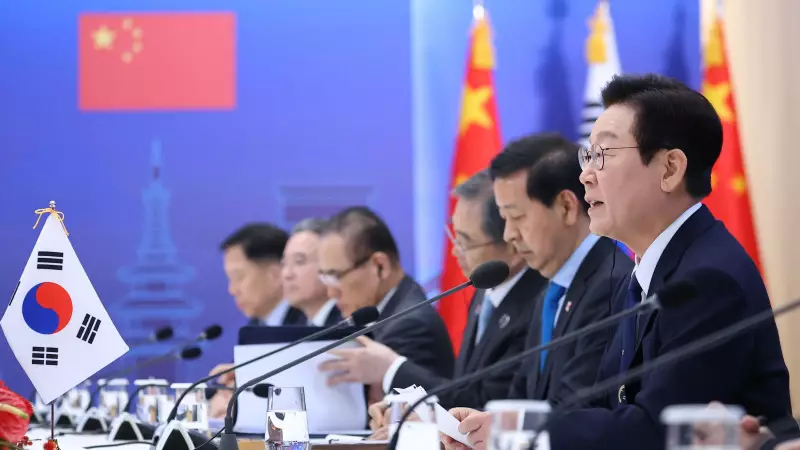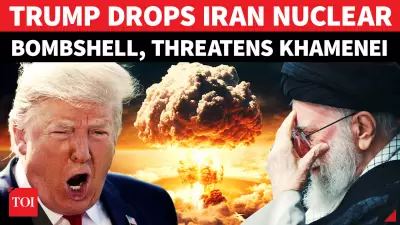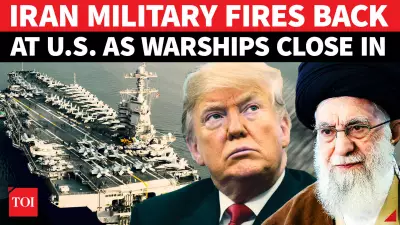
In a significant diplomatic development that could reshape regional security dynamics, South Korean President Yoon Suk Yeol has made a direct appeal to Chinese President Xi Jinping to help revive stalled nuclear negotiations with North Korea. The high-stakes request came during bilateral talks that underscored the complex geopolitical landscape of Northeast Asia.
A Critical Diplomatic Intervention
The meeting between the two leaders represents a crucial attempt to break the prolonged deadlock in denuclearization talks with Pyongyang. President Yoon emphasized the urgent need for China, as North Korea's primary ally and economic partner, to leverage its unique position to bring Kim Jong-un's regime back to the negotiating table.
This diplomatic overture comes at a time of escalating tensions on the Korean Peninsula, with North Korea conducting numerous missile tests and showing increased belligerence in its military posturing. The international community has watched with growing concern as previous diplomatic efforts have faltered and nuclear ambitions have advanced.
The China Factor in Korean Peninsula Politics
China's role as North Korea's most significant ally and trading partner positions Beijing as a potentially decisive mediator in any renewed diplomatic initiative. Historical ties and economic interdependence give China substantial influence over Pyongyang, though Beijing has often walked a delicate line between maintaining its alliance and addressing international non-proliferation concerns.
Analysts suggest that President Yoon's appeal reflects a strategic recognition that without China's active participation and pressure, any meaningful progress toward denuclearization remains unlikely. The request also highlights South Korea's continued commitment to diplomatic solutions despite North Korea's provocative actions.
Regional Security Implications
The outcome of this diplomatic initiative carries profound implications for regional stability and global non-proliferation efforts. A successful resumption of talks could pave the way for reduced tensions and potentially verifiable steps toward denuclearization, while failure might signal a new phase of heightened military preparedness and potential arms escalation.
International observers are closely monitoring China's response, as Beijing's willingness to exert meaningful pressure on North Korea will test both the strength of the Sino-North Korean alliance and China's commitment to regional stability. The diplomatic maneuvering occurs against the backdrop of increasingly complex great power competition involving the United States, China, Russia, and various regional actors.
As the situation develops, the international community remains hopeful that this diplomatic initiative might break the cycle of provocation and response that has characterized Korean Peninsula relations in recent years, potentially opening a new chapter in one of the world's most persistent security challenges.






